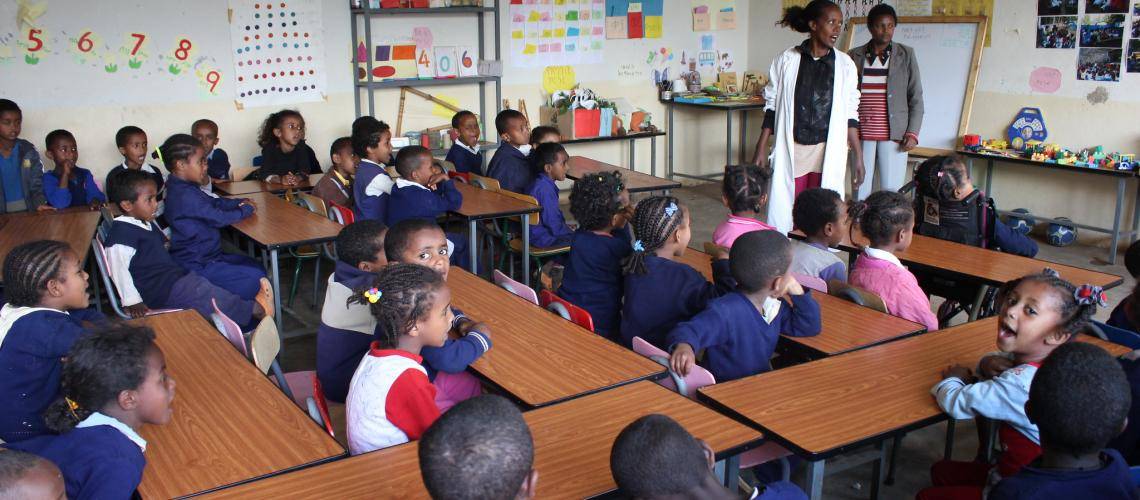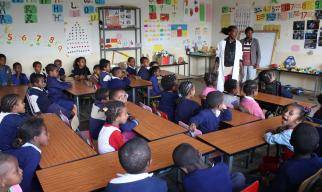When children play and interact with one another, they develop long-term social emotional capabilities and their developing brains are given the chance to grow in a nurturing, language-rich, and relatively unhurried environment. There are many documented play-based and experiential approaches for promoting children’s learning and readiness for primary school. However, across many contexts in Africa, play based learning is often ignored in preschool and early grades of primary in favour of academic focused education that is abstract and less experiential. Most promising play-based approaches remain within organizations and at pilot stage because of minimal lessons and efforts on scaling. One such model is the child-to-child approach, a play-based approach that encourages children to build knowledge as they play and relate with one another.
The child-to-child model has been shown to promote smooth transition from preschool to primary school as older children help younger children to acquire school readiness skills, literacy and social skills in communities where formal preschools are either unavailable or not well equipped. The Child-to-Child approach views children as a resource to help meet the psychosocial and learning needs of other children and families living in difficult circumstances. Child-to-Child’s core principle of meaningful participation maintains that children can and should be actively involved in improving their own situation and that of their family and neighbors. This project will generate knowledge on how to adopt and scale up the child-to-child model at national and community levels to improve transition of children from pre-primary to primary school in Uganda, Ethiopia and Malawi.
The consortium of institutions that will undertake this project include Kyambogo University in Uganda as the lead, University of Gondar in Ethiopia, Chancellor College University of Malawi and Literacy and Adult Basic Education (LABE) in Uganda.
This project is one of the five projects selected through a Global Partnership for Education Knowledge and Innovations Exchange Call for Proposals for early learning in East, West, and Southern Africa: Generating and mobilizing innovative knowledge for regional education challenges and was selected based on an independent assessment panel's recommendation.


